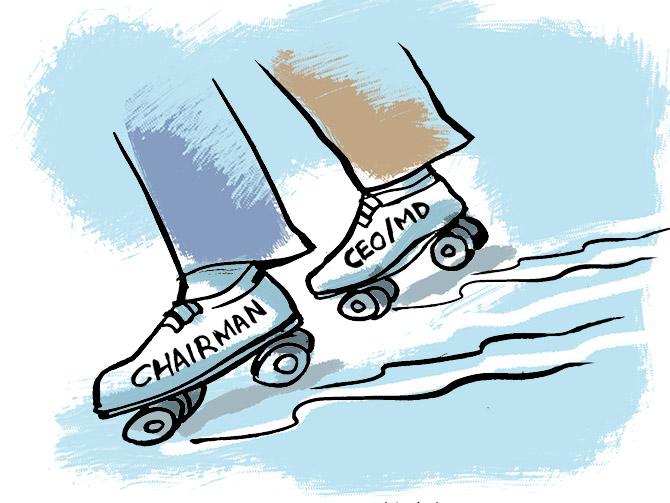India reclaims 5th position among investment destinations in the world after slipping to 9th in 2023, finds PwC survey.

Most Indian chief executives are optimistic about the economy and believe it would improve in the coming 12 months, said a survey by consulting and auditing firm PwC on Tuesday.
The company’s 27th annual global survey polled 4,702 chief executive officers (CEOs) in 105 countries and territories, including 79 in India, from October 2 to November 10, 2023.
As many as 86 per cent of CEOs in India — 30 per cent higher than a year ago — are confident that the economy would improve.
In comparison, only 44 per cent of global CEOs believe the economy would improve in their territories.
The optimism around the Indian economy is reflected worldwide, with the country reclaiming the position of fifth top investment destination for global CEOs after ranking ninth in 2023.
The survey was released on the first day of the World Economic Forum annual meeting in Davos.
As many as 62 per cent business leaders in India were “extremely or very confident” about their companies’ growth over the next 12 months. Globally, only 37 per cent CEOs said the same.
CEOs in India listed inflation and cyberattacks as the biggest threats to their companies in the next 12 months.
Twenty-eight per cent Indian CEOs regarded cyberattacks as a top threat compared to 18 per cent in 2023.
India’s annual retail inflation hit a 15-month high of 7.44 per cent in July 2023, before cooling down to around 5.5 per cent in November, said a press release by PwC.
Health threats also figured high on Indian leaders’ list, with 27 per cent saying they expected their companies to be extremely and highly exposed to these over the next 12 months.
The concern over health is evident with employees actively seeking employers who offer generous health insurance for their families, added the release.
“Despite continuing global headwinds, the Indian economy has remained resilient with expectations of a strong growth trajectory in the near future.
"While India CEOs will indeed play a big role in the country becoming a $5-trillion economy, they will also need to reinvent their businesses and work culture to ensure long-term sustainable success,” said Sanjeev Krishan, chairperson, PwC in India.
On the impact of generative artificial intelligence (GenAI) on business, 71 per cent of India leaders felt it would increase employee efficiency, while 70 per cent believed it would improve their own performance.
They also believed it is likely to increase revenue (48 per cent) and profitability (46 per cent).
On the impact of the growing use of GenAI, around 30 per cent felt it would lead to a shrinking of jobs, but there was a broader acknowledgement of its potential to create job opportunities, with 48 per cent saying it would have little or no impact on headcount and 13 per cent seeing an increase.
Indian CEOs are also increasingly looking to reinvent their businesses to deal with regulatory, internal and supply chain constraints.
While 61 per cent said customer preferences had led to changes in how their companies created, delivered and captured value in the last five years, 57 per cent said technological changes were also prominent triggers of reinvention.
“India’s business leaders will need to strategically tackle barriers such as regulatory constraints and lack of tech capabilities to turn them into growth opportunities, which will create lasting value for businesses, society and the environment,” Krishan said.












 © 2025
© 2025